What is ranked-choice voting and where does it stand in Wisconsin?
A ballot format that has voters rank candidates is getting more attention among state lawmakers, with proponents saying it requires office-seekers to appeal more broadly, while opponents saying the approach would be too confusing.
March 7, 2024
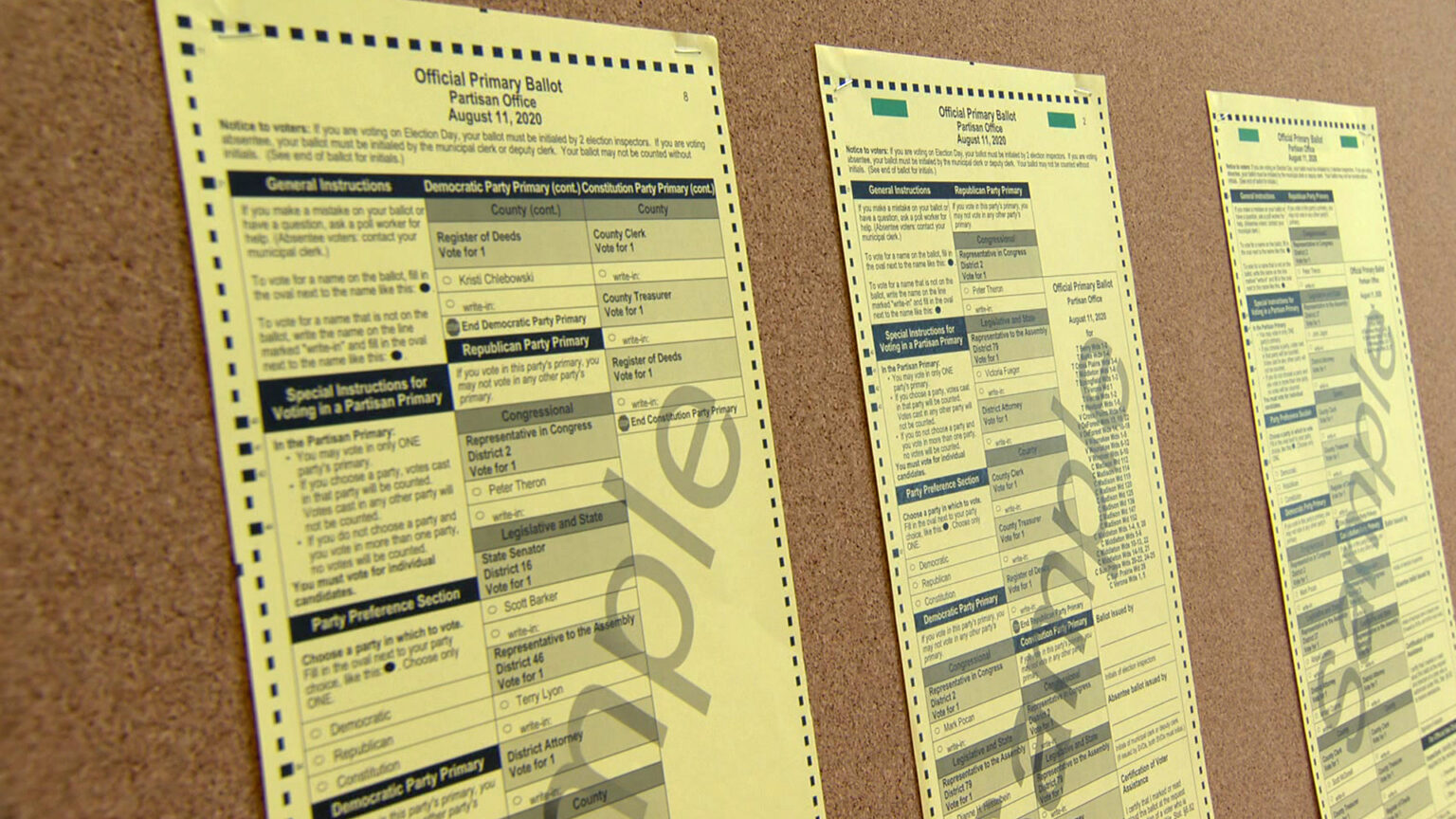
Sample ballots are displayed at a polling place for Wisconsin's partisan primary held on Aug. 11, 2020. State lawmakers are increasingly focusing their attention on the method of voting in the state, with proposals to enact and prohibit a method known as ranked-choice voting. (Credit: PBS Wisconsin)
When it comes to ranked-choice voting, you probably either love it, hate it, don’t really get it or maybe you’ve never even heard of it.
If you’re in those last two categories, here’s a brief explanation.
Just like it sounds, ranked-choice voting has voters rank the candidates in preference from most favorite to least favorite. If one candidate has more than 50% of the first-place votes in the first round, they win immediately. If not, the candidate who receives the fewest first-place votes is eliminated. Then, the votes from those ballots which had their first-choice eliminated get moved to their second-choice candidate. This elimination process repeats until one candidate gets more than 50% support.
No matter which way voters may feel about this approach, efforts both in favor and against ranked-choice voting are gaining momentum, including in Wisconsin.
“Ranked choice voting is the fastest growing election reform in the country,” said Deb Otis, research and policy director for FairVote, a nonpartisan voter advocacy group that supports and promotes ranked-choice voting.
Across the nation, voters in 50 American cities, counties and states – Maine and Alaska — have started using ranked-choice voting systems as of February 2024.
Otis said the movement in favor of ranked-choice voting has been gaining more support in recent years because it “gives voters more of a voice and elects candidates with the broadest support, which improves representation.”
“Ranked-choice voting started being used in the 1800s. But, internationally, it’s been used in public elections for about 100 years,” Otis continued, noting Ireland and Australia were early adopters. “What I call the modern era of ranked-choice voting began here in the U.S. 20 years ago with San Francisco being the first.”
In the Midwest, tracking by FairVote indicates ranked-choice voting is being used in local elections in Minneapolis, St. Paul and other Minnesota cities. It’s also in use in Springfield, Illinois for military and overseas voters. There are additional efforts to adopt ranked-choice voting for state and federal elections in Minnesota and Illinois as well as in Michigan, Washington, Arizona and other states.
Otis also said ranked-choice voting seems contagious: “When one location starts using it, we see other places in the same region start opting in.”
Ranked-choice voting support in Wisconsin
In Wisconsin, a bipartisan bill to implement ranked-choice voting was introduced in the 2023-24 legislative session by state Sen. Jeff Smith, D-Brunswick, and sponsored by almost 20 other legislators. Dubbed the “Final Five” bill by Smith, it received a committee hearing in December but was not moved forward for a floor vote in either the state Assembly or Senate.
Smith’s “Final Five” ranked-choice voting bill would establish a system where the top five candidates in primary elections for Wisconsin’s U.S. representatives and senators would move on to the general election, regardless of political party affiliation. Then, in the general election, the ranking-and-elimination process would kick in until one candidate got more than 50% support.
“We wanted to start with the federal offices,” explained Smith. “But I have confidence that once this becomes something we do [for those races], people are going to like it and probably want to adopt it for all of our legislative offices.”
Smith said ranked-choice voting has many benefits.
“There may be more potential candidates who are willing to step up because they’re not going to feel like it’s going to be a chosen one or one or two people from a political party that are going to get all the attention,” he said.
Smith added that in other states, ranked-choice voting also leads to more civility between candidates.
“Candidates [will] begin campaigning to be a voter’s second or third choice, so that will change how they act — it changes how they behave,” he said. “They would be less rude and there’s less attacking other candidates. And we’ve seen this in Alaska already where they’re already using this — their elected officials are not hung up on following their most radical base to win a primary.”
Ranked-choice voting opposition in Wisconsin
On the other side of the debate, state Sen. Duey Stroebel, R-Saukville, has introduced a constitutional amendment that would prohibit ranked-choice voting from being used in any election in Wisconsin.
“We should abide by the one-person-one-vote concept and ranked-choice voting does not do that,” he said.
Stroebel added that ranked-choice voting — including Smith’s ‘Final Five’ system — may make voters lose faith in elections. Stroebel also said ranked-choice voting could overload voters and make it too difficult to “understand the ideology of candidates one through five,” which could then lead to “ballot exhaustion.”
“If I had to put down five choices, somewhere down the line, I’d be voting for someone that I had no desire to ever see in that office,” he added.
Stroebel, who was able to attract support for his effort from more than two dozen other Republican lawmakers, said he wants to prohibit ranked-choice voting through a constitutional amendment because “there’s more permanence” to it than through regular legislation.
Like Smith’s pro-ranked-choice bill, Stroebel’s anti-ranked-choice amendment received a committee hearing but did not move beyond that stage.
What’s the future of ranked-choice voting for the state?
With the Assembly finished with their 2023-24 legislative session and the state Senate soon to end its session, neither Smith’s nor Stroebel’s efforts to pass or prohibit ranked-choice voting will be signed into law before the next set of elections.
But both senators promise to bring their efforts back to the Legislature in its next session.
“It deserves lots of discussion and we’ll get more discussion in succeeding sessions and we’ll see where that goes,” said Stroebel.
“I will continue to fight for a better system that works for our voters,” said Smith.
 Passport
Passport




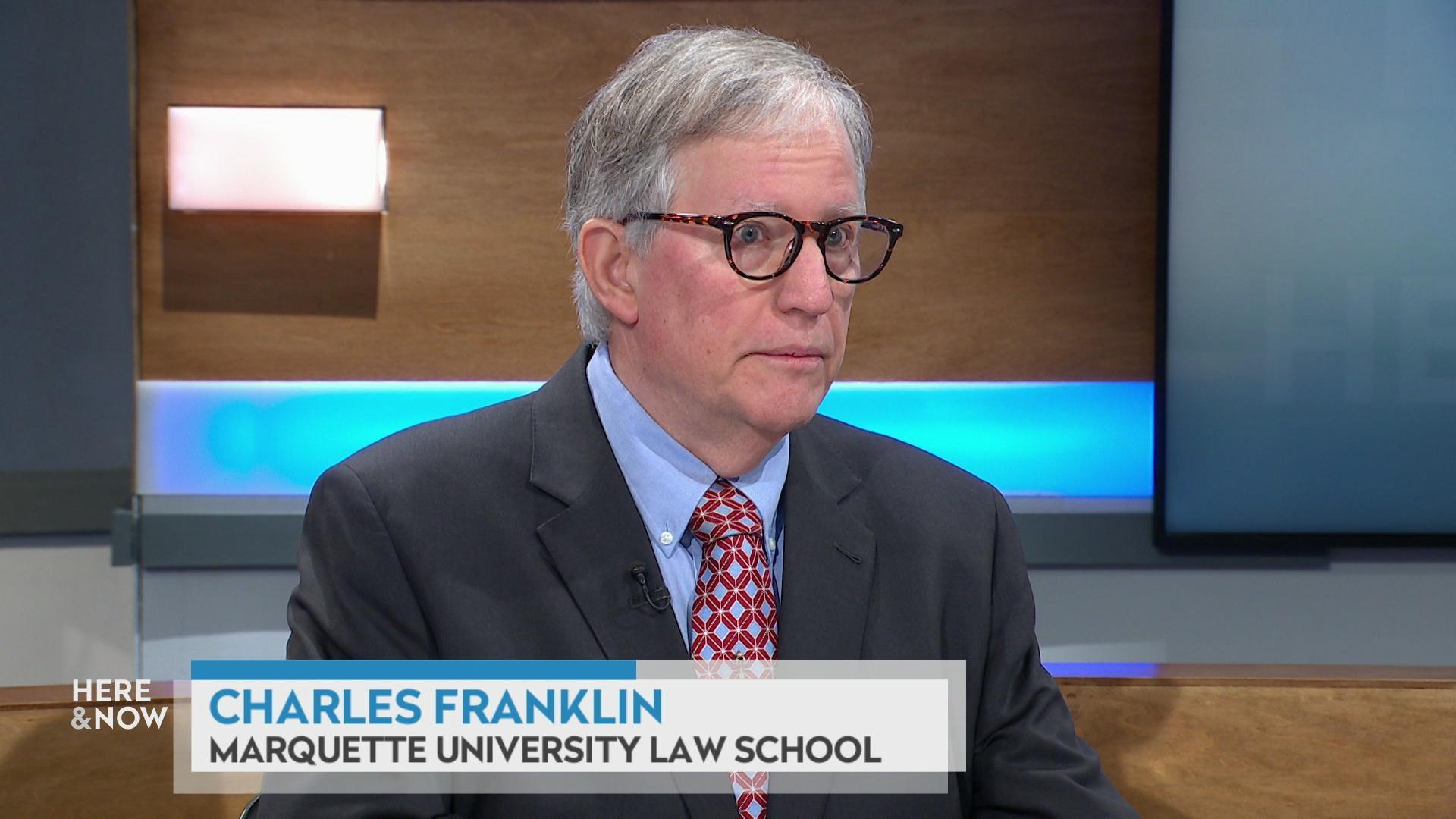

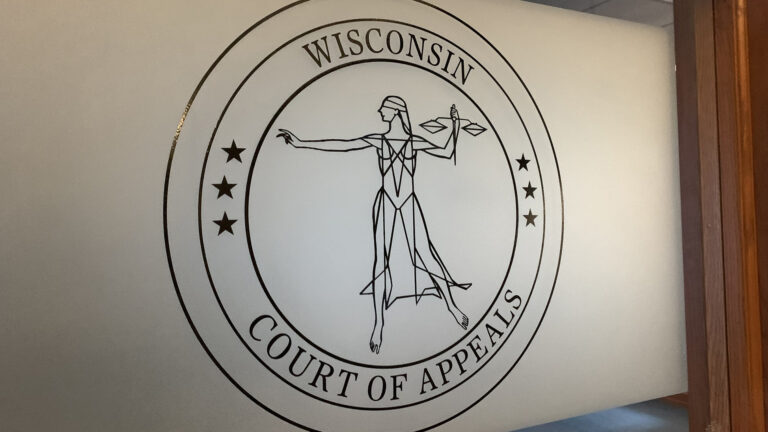
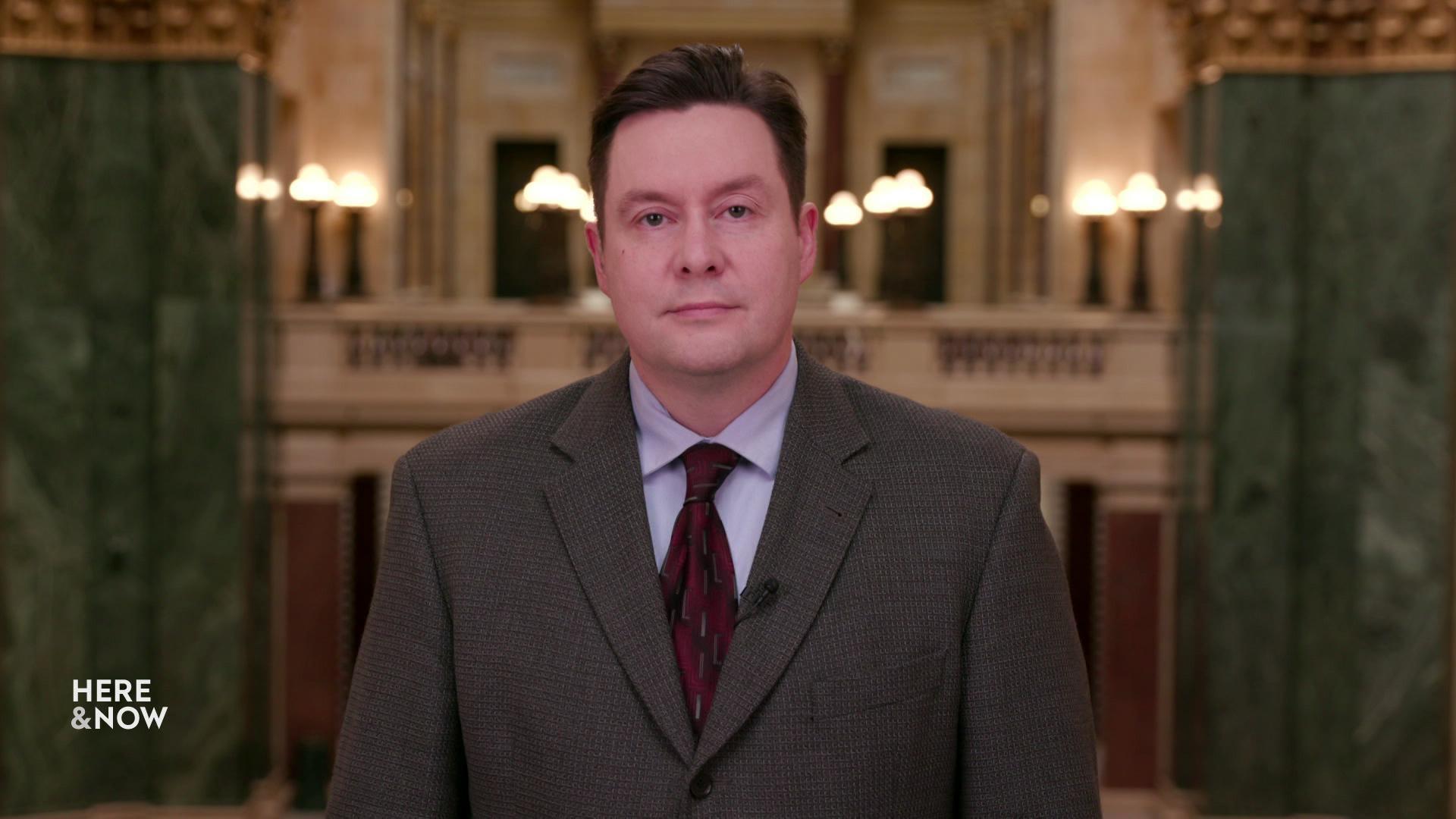
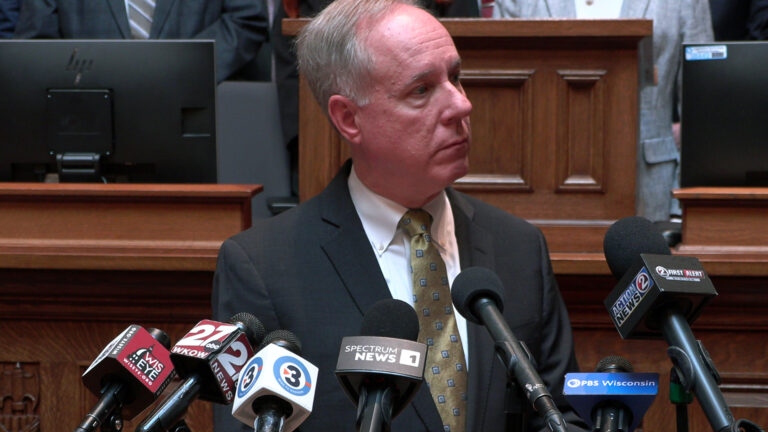


Follow Us